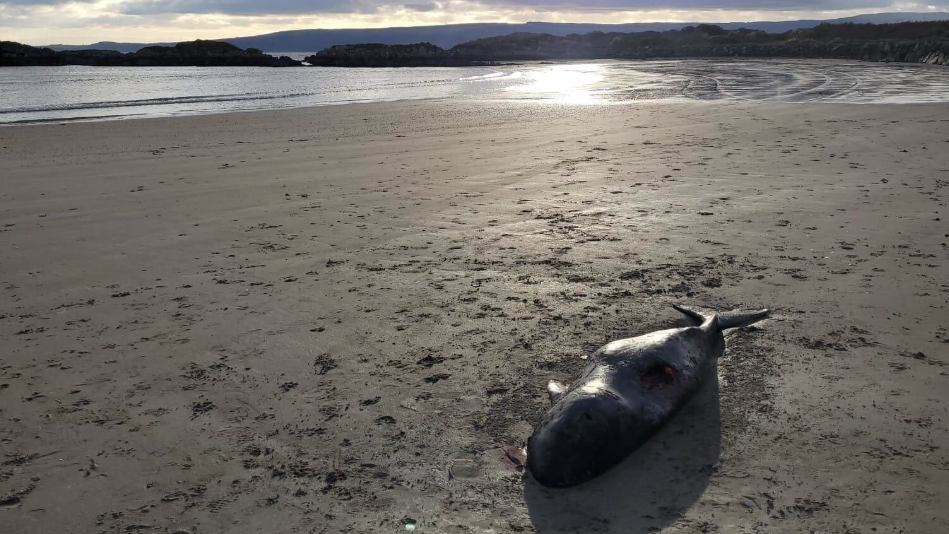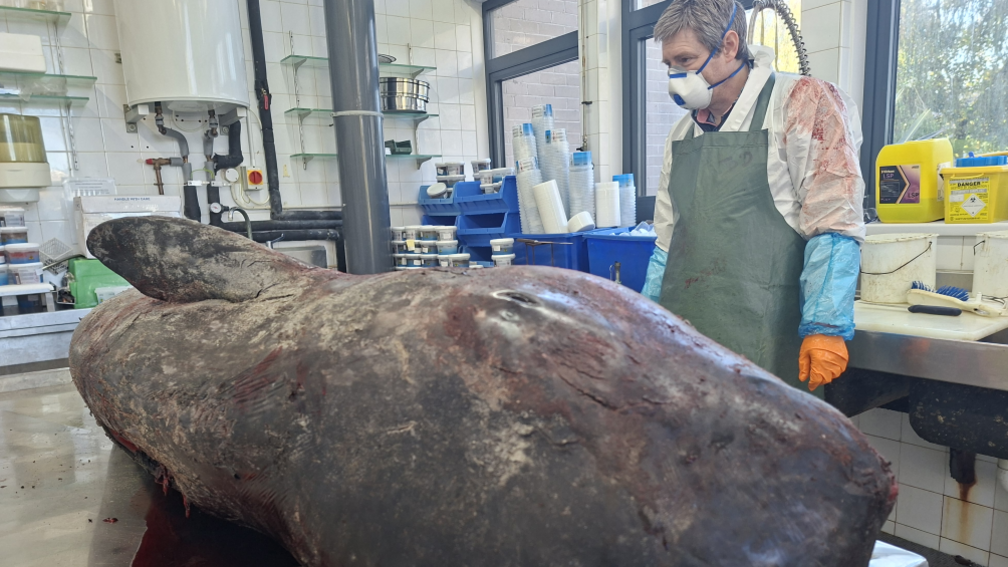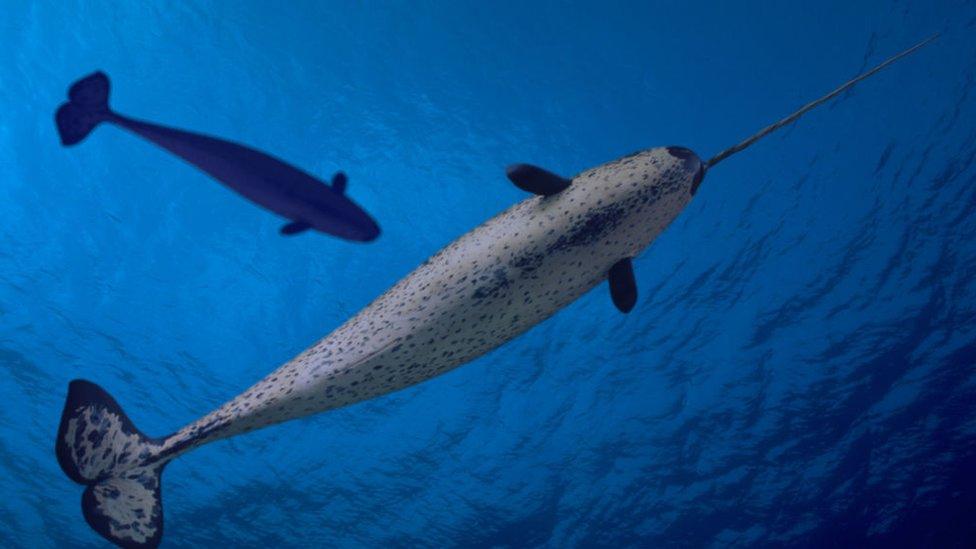Narwhal carcass washes ashore on County Donegal beach

The female narwhal was discovered by a family walking on Sweet Nellies Beach on County Donegal's Inishowen Peninsula last weekend
- Published
The body of a narwhal, a species of toothed whale normally found in Arctic waters, has washed up off the coast of the Republic of Ireland.
The female narwhal was discovered by a family walking on Sweet Nellies Beach on County Donegal's Inishowen Peninsula last weekend.
It is understood to be the first recorded sighting of the species in Irish waters and only the tenth recorded stranding of the species in western Europe.
"This is an extraordinary and unprecedented event," Niall Ó Donnchú of Ireland's National Parks and Wildlife Service (NPWS) said.

Narwhal in Cork Regional Veterinary Laboratory with Jim O'Donovan preparing to conduct a post-mortem examination on the animal
Male narwhals grow a long, spiralled tusk, giving rise to the species being sometimes referred to as the unicorns of the sea.
Generally, this trait is seen in males, although, there are a few females who have tusks.
Narwhals live above the Arctic Circle, right up to the polar ice cap.
In the summer they migrate to coastal waters and the fjords of Greenland and Canada moving offshore again in winter to avoid being trapped by ice.
There are an estimated 170,000 narwhals living worldwide and their natural predators are polar bears, orcas and sharks.
The female narwhal that washed ashore in County Donegal was taken to the Regional Veterinary Laboratory in Cork for a post-mortem examination and tests.
"As we await the results, NPWS will continue to work closely with our partners to monitor Ireland's marine environment and to better understand the impacts of climate and ecological change on vulnerable species," Mr Ó Donnchú said.
'A remarkable stranding'
The whale's stranding in Donegal was initially reported to the Irish Whale and Dolphin Group (IWDG), whose volunteers, along with NPWS staff, were able to retrieve the narwhal.
"It's a remarkable stranding," Dr Simon Berrow of the IWDG said.
"As our waters warm, we have seen a northward movement of whales and dolphins in Irish waters as fish move north seeking cooler conditions.
"To have an Arctic species stranded for the first time is somewhat unexpected."
He said the incident "highlights the benefit of long-term monitoring schemes" and said the public play a vital role in helping to alert organisations like themselves to these sightings.
Dr Berrow told BBC News NI the post-mortem was carried out on Monday, but it is still too early to tell the exact cause of death for the young female animal.
Ireland's Minister for Nature, Heritage and Biodiversity, Christopher O'Sullivan, said the examination of the whale will hopefully "reveal important details about its life and history, and shed some light on the reasons why it arrived on our shores."
"The narwhal is an Arctic species that is mainly found in cooler waters.
"Findings like this are a stark reminder of the vulnerability of wildlife in the face of a changing climate, and the need to protect them," he said.
- Published18 March 2020
